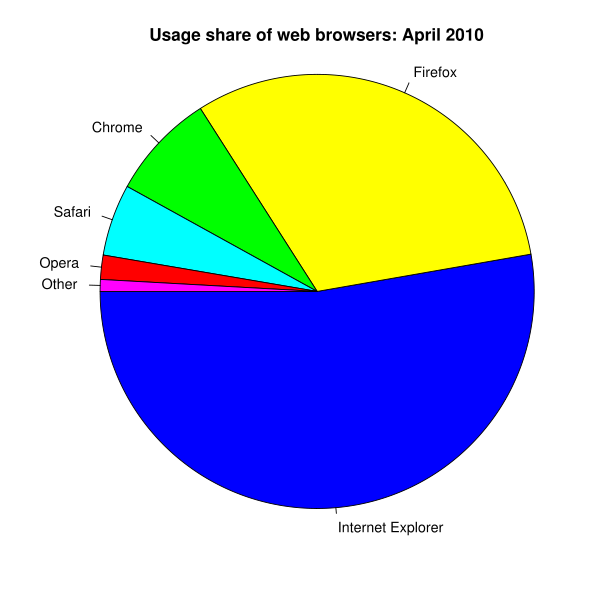HTML is the acronym for HyperText Markup Language. In essence, it is the language in which web pages are written and interpreted by web browsers. HTML5 is thus the latest version of HTML. According to Wikipedia:

HTML5 is currently being developed as the next major revision of HTML (HyperText Markup Language), the core markup language of the World Wide Web. HTML5 is the proposed next standard for HTML 4.01, XHTML 1.0 and DOM Level 2 HTML. It aims to reduce the need for proprietary plug-in-based rich internet application (RIA) technologies such as Adobe Flash and Microsoft Silverlight. In common usage, HTML5 may also refer to the additional use of CSS3, as both technologies are under development in parallel.
Another definition of HTML5 from html5.org is as follows:
HTML5 is a new version of HTML and XHTML. The HTML5 draft specification defines a single language that can be written in HTML and XML. It attempts to solve issues found in previous iterations of HTML and addresses the needs of Web Applications, an area previously not adequately covered by HTML.
As the world wide web gears up for the full unleashing of HTML5, some web browsers are already supporting some elements of HTML5. The support varies widely. A relatively new web tool attempts to reveal the HTML5-compatibility of your web browser. All you need to do is visit http://html5test.com and within some seconds, the full report would be revealed.
I have tried it from four different browsers, with interesting results. The following list is based on the performance of the web browsers:
| Browser | SCORE out of 160 | Great | Good | Reasonable | Badly | Non-existent |
| Google Chrome
5.0.375.55 |
142 | Doctype, Canvas, Video, Geolocation, Storage, Offline web apps, Workers, Section elements, Grouping content elements | Audio, Text-level semantic element, forms | User interaction | ||
| Apple Safari
4.0.5 |
115 | Doctype, Canvas, Storage, Offline web apps, Workers, Section elements, Grouping content elements | Video, Audio, Grouping content elements, Text-level semantic element | Forms, User interaction | ||
| Opera
10.53 |
102 | Doctype, Canvas, Audio, Storage | Video | Offline web applications, Forms, User interaction | Geolocation, Workers, Section elements, Grouping content elements, Text-level semantic element | |
| Mozilla Firefox
3.6.3 |
101 | Doctype, Canvas, Geolocation, Storage, Workers | Video, Audio | Offline web applications, User interaction | Forms | Section elements, Grouping content elements, Text-level semantic elements |
| Internet Explorer
8.0.7600 |
19 | Doctype, Storage | User interaction | Canvas, Video, Audio, Geolocation, Offline Web Applications, Workers, Section elements, Grouping content elements, Text-level semantic element, Forms |
From the above table, it is clear that using HTML5-compatible as the yard-stick, Google Chrome is currently the most progressive web browser today while Internet Explorer is the worst. This doesn’t come as a surprise to me. Rather, I am somewhat disappointed that Mozilla Firefox is towards the end of the table. Note that beta versions of the listed web browsers might necessarily support more HTML5 attributes.
As of April 2010, Internet Explorer is still the market leader in the browser arena those the coverage of the browser has shrinked drastically, over the past few years. See below:

Web browser usage
Internet Explorer (53.26%; Usage by version number)
Mozilla Firefox (31.60%; Usage by version number)
Google Chrome (8.00%)
Safari (5.40%)
Opera (1.82%)
Other (0.89%)





This is a wonderful piece about HTML5 I was reading about it this morning on wikipedia. It is a job Well done.
Thanks Sir.
I was watching BBC Click this morning and the emphasis was once more on HTML5 bringing about the demise of Adobe Flash. Granted this would take some years given the millions of websites, devices and games that run on Flash. As usual, Apple has been at the forefront of promoting HTML5 with a personal endorsement by Steve Jobs himself – much to the anger of Adobe and other Flash loyalists.
The argument is that: Flash reduces battery life in mobile devices. The details is a bit too techy. Already several big players including youtube, Microsoft, Apple have incorporated HTML5 in some ways. Internet Explorer 9, I heard, will incorprate HTML5.
about flash reducing battery life I dont think Steve argument is misplaced. I have always noticed this if all i do with my laptop is reading my battery last longer. but if i am surfing the internet it does not last for long.
Steve Jobs is biased towards Flash and his comments are not objective. I use a Nokia 5800 XpressMusic. The 5800 comes with Flash but I HARDLY use it. I typically surf basic mobile sites and so where does flash come in there.
The reasons (valid or not) Steve Jobs and his Apple brigade are avoiding Flash is more complex than battery life.
He had claimed also that more than half of the times a mac computer crashes, flash was responsible.
I really love Chrome, it fast and constantly updated with great features.
Google Chrome quietly upgrades itself in the background without asking for one’s permission. Folks on per MB internet bundles would frown at that. 😉
Brings the question of what else happens without our permission or knowledge. I guess its fuel for conspiracy theorists.
Thanks,am highly happy for your quick reply.Pls,can the multi tv decoder receive other FTAs?